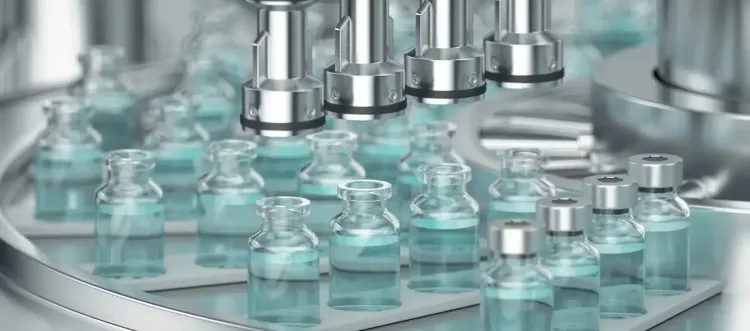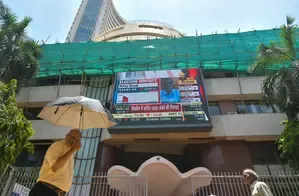FDI in India's Pharmaceutical Sector Surpasses ₹19,134 Crore for 2024-25

Synopsis
Key Takeaways
- FDI inflow in India's pharma sector reaches ₹19,134.4 crore.
- Production Linked Incentive Scheme boosts domestic manufacturing.
- 34 projects commissioned under the PLI for Bulk Drugs.
- Penicillin G Project aims for substantial import substitution.
- Indian pharma sector emphasizes high-quality, cost-effective medicines.
New Delhi, April 13 (NationPress) The pharmaceuticals and medical devices sector in India has attracted a remarkable FDI inflow of ₹11,888 crore from April to December in the financial year that concluded on March 31, 2025. Additionally, 13 FDI proposals amounting to ₹7,246.40 crore for brownfield projects during 2024-25 have been sanctioned, resulting in a total FDI of ₹19,134.4 crore, as per data compiled by the Department of Pharmaceuticals.
The government's Production Linked Incentive (PLI) Scheme has emerged as a pivotal initiative aimed at enhancing domestic manufacturing, drawing in investments, decreasing reliance on imports, and increasing exports, as stated in an official announcement made on Sunday.
A notable success under the PLI scheme is the exceeding of targeted investments. The initial commitment was ₹3,938.57 crore, but actual investments have surged to ₹4,253.92 crore (as of December 2024), according to the statement.
In the PLI scheme for Bulk Drugs, 48 projects have been chosen, with 34 projects already commissioned for 25 bulk drugs as of December 2024.
Among the prominent projects under the PLI Scheme for Bulk Drugs is the Penicillin G Project in Kakinada, Andhra Pradesh, which has attracted an investment of ₹1,910 crore and is anticipated to enable import substitution of ₹2,700 crore annually.
The Clavulanic Acid Project in Nalagarh, Himachal Pradesh, is also being executed under this scheme with an investment of ₹450 crore, expected to lead to an import substitution of ₹600 crore per year.
The PLI Scheme for Pharmaceuticals was sanctioned by the Union Cabinet on February 24, 2021, with a financial outlay of ₹15,000 crore, covering the production period from FY 2022-2023 to FY 2027-28. This scheme provides financial incentives to 55 selected applicants for the manufacture of identified products across three categories over a six-year period. High-value pharmaceutical products such as patented/off-patented drugs, biopharmaceuticals, complex generics, anti-cancer drugs, and autoimmune drugs are among those being produced.
For the pharmaceutical sector, the initiative aims to diminish reliance on Key Starting Materials (KSMs), Drug Intermediates (DIs), and Active Pharmaceutical Ingredients (APIs), thereby reinforcing India's manufacturing foundation. By fostering production and innovation, it enhances domestic capabilities and boosts global competitiveness.
The PLI Scheme for Medical Devices was inaugurated to promote domestic manufacturing of advanced medical equipment and lessen dependence on imports. This scheme offers financial incentives to manufacturers in critical segments like radiology, imaging, cancer care, and implants.
The scheme will operate from the fiscal year 2020-21 to 2027-28, with a total financial outlay of ₹3,420 crore. Selected companies receive a financial incentive equal to 5% of the incremental sales of medical devices manufactured in India, applicable to the targeted segments of the scheme, for a five-year duration.
The Indian pharmaceutical industry remains integral in the production of high-quality, cost-effective medicines for both local and global markets, renowned for its leadership in branded generic medications, competitive pricing, and a strong network of domestic brands, the statement concluded.









